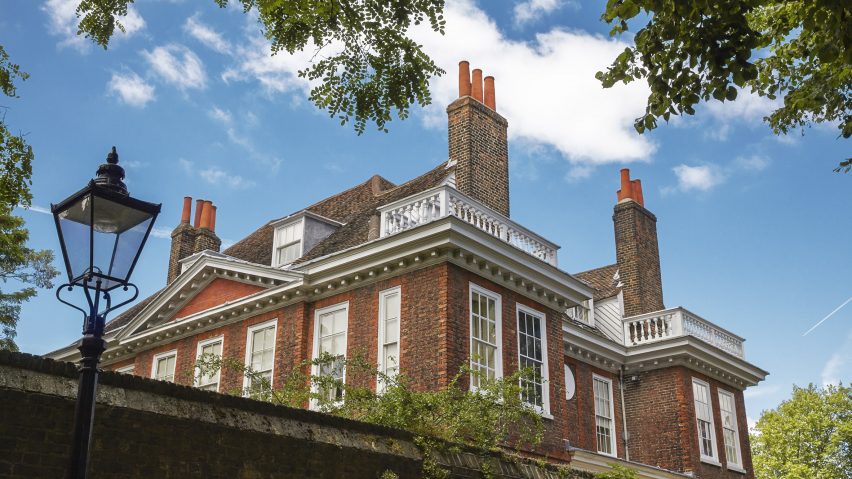
Fenton House's Please Sit installation reimagines the chair six ways
A ladder-like seat inspired by a biblical tale and an armchair that appears to have been swallowed by a rug are some of the pieces to appear in this installation curated by designer Gitta Gschwendtner.
The installation, titled Please Sit, sees six contemporary chairs displayed amongst the ornate living spaces of Fenton House – a 17th-century residence in London's affluent Hampstead neighbourhood.
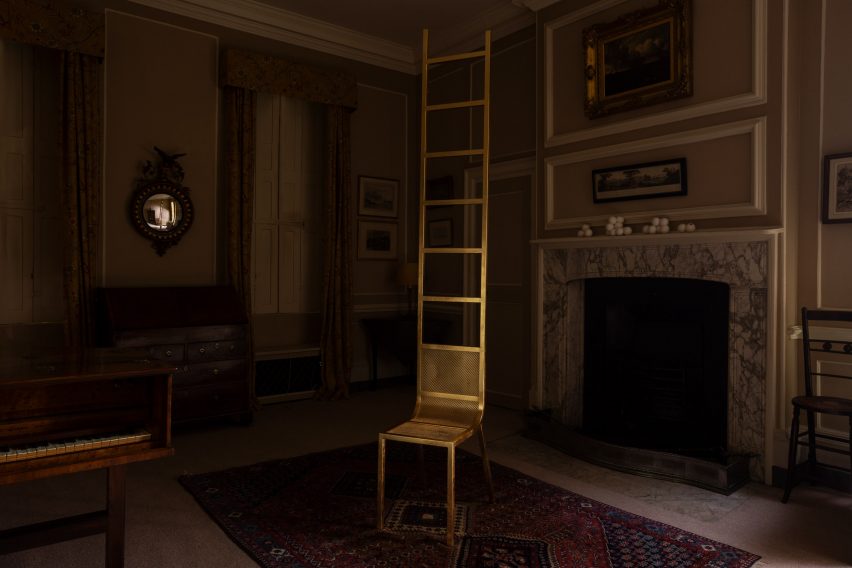
It's presided over by UK conservation charity The National Trust, which commissioned German designer Gitta Gschwendtner to revitalise the home's rooms.
The designer chose to install a selection of works that foster conversation amongst visitors and encourage them to consider the historical setting from a different perspective.
Gschwendtner then invited five other designers – Michael Marriott, Nina Tolstrup, Carl Clerkin, Frith Kerr and Maisie Broadhead.
Each designer produced a chair inspired by Fenton House's interiors or its array of antique ornaments and furnishings procured from different inhabitants that have lived in the property over the years.
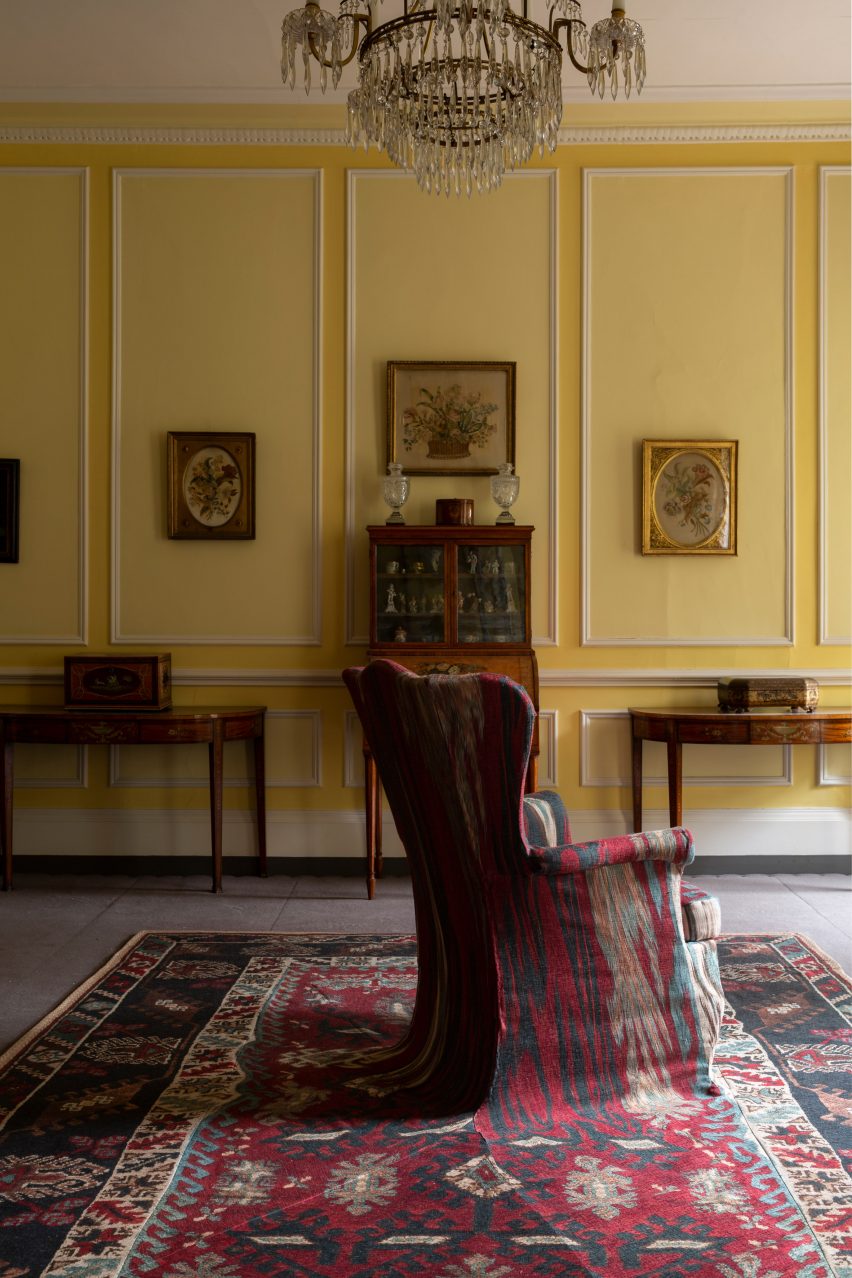
"Asking the visitor to sit, makes them more than just a spectator; they become a guest, invited to participate in the setting," explained Gschwendtner.
"I am interested in how the six designers will interpret the house differently, look at different aspects of the house and create very different seats, which become objects in the room. This creates a much richer narrative."
The interactive nature of the installation is also meant to offer visitors a different experience of National Trust properties, where touching furnishings is typically restricted.
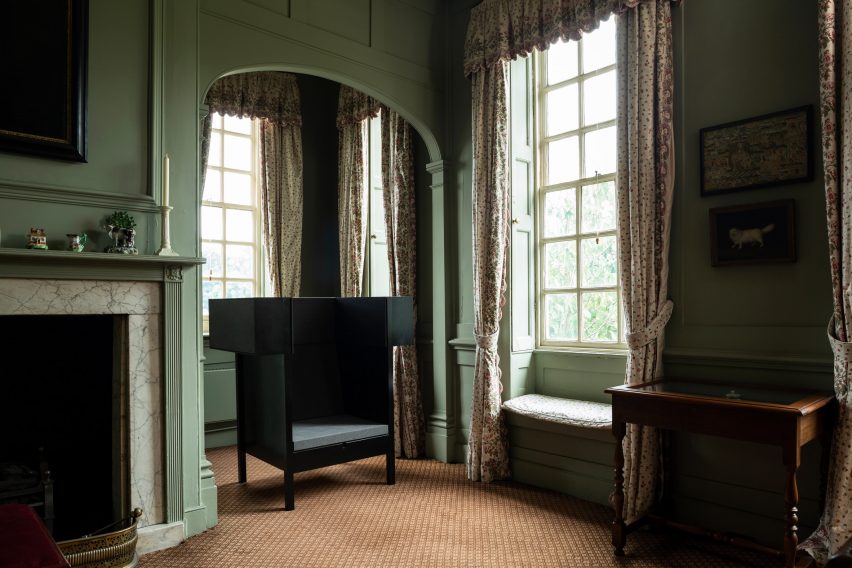
For her contribution, Gschwendtner took cues from an embroidered silk hanging in the house which depicts Jacob's Ladder: a story from the Book of Genesis that tells of biblical figure Jacob climbing a ladder leading to heaven.
The resulting chair is crafted from perforated gold metal and features an unusually high backrest with ladder-like rungs. Gschwendtner is also making versions of the seat from galvanised steel, which will be dotted throughout the house's walled garden.
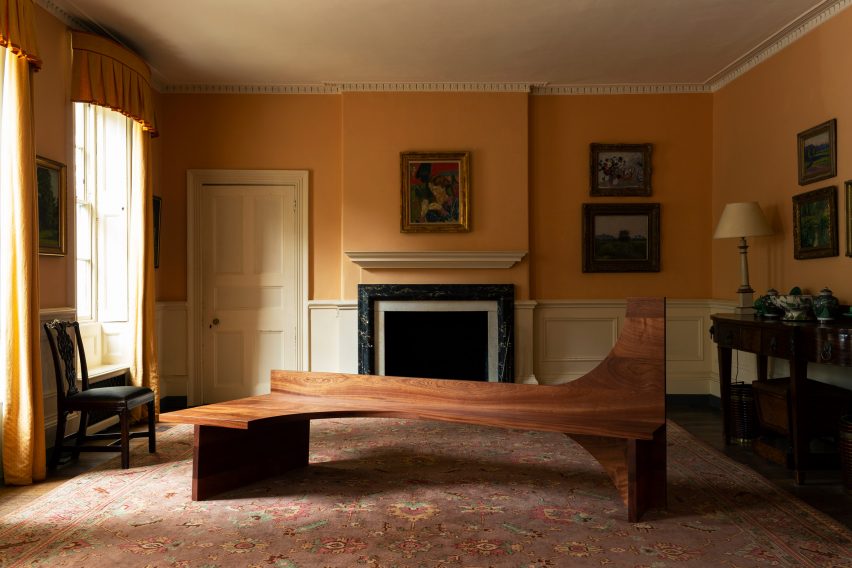
Broadhead alternatively looked into the backstory of Fenton House's last occupant, Lady Binning, a widow who allegedly isolated herself within the property after the death of her husband.
Her chair has been upholstered with thick patterned fabric so as to appear to have been engulfed by a rug that lies underneath, suggestive of the "trapped" existence of Binning.
Clerkin has fashioned a musical wingback black chair with integrated speakers, nodding to the property's extensive collection of harpsichords.
Throughout the installation, it will play a fictional audio story that describes the lives of the home's past owners. The wooden, bench-style chair designed by Tolstrup also references the form of harpsichords, and boasts a sweeping backrest.
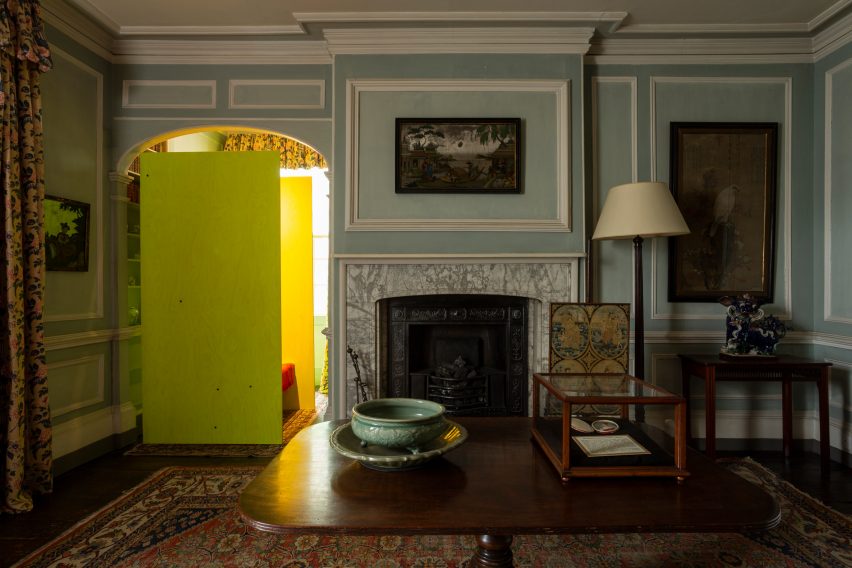
Tall, neon-yellow boards made from plywood close-off the seat of Marriot's chair, which has a geometric shape inspired by the 43 trinket boxes and perfume boxes that decorate the house's Oriental Room.
Meanwhile Kerr's bed-like chair plays with the idea of good and bad taste, and is dressed with clashing green and peachy orange satin cushions.
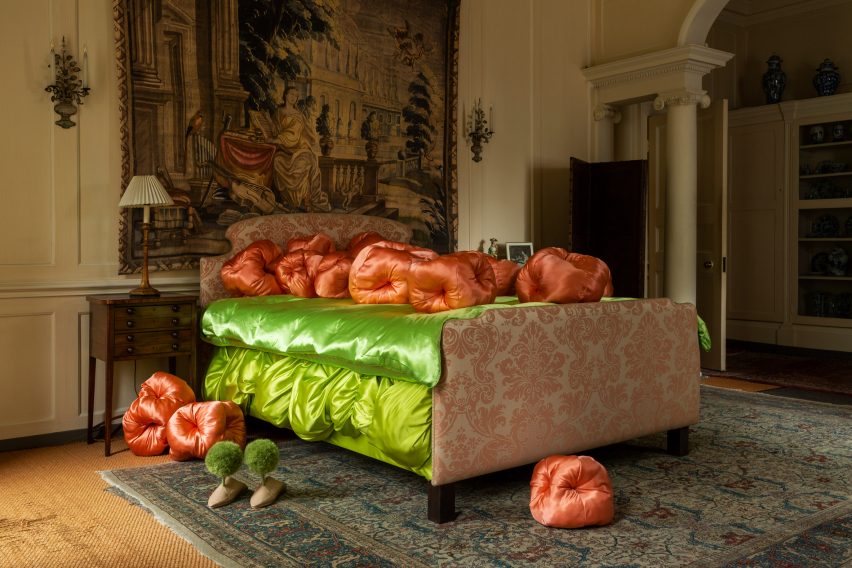
Please Sit opened as part of the 2019 London Design Festival – the annual event has also seen designer Lee Broom create an installation of light and mirrors that gives visitors the experience of being inside a kaleidoscope, and architecture firm Kengo Kuma install a ring-shaped bamboo sculpture at the V&A.
Photography is by Oskar Proctor.